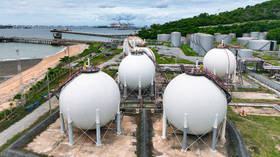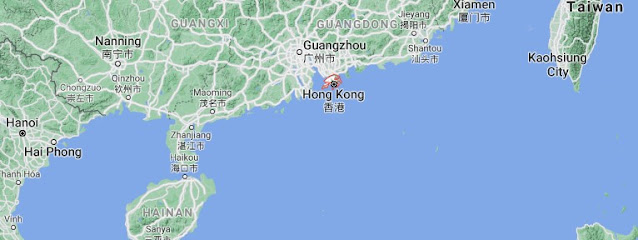EU delays Russian energy withdrawal plan
– FT

The EU will once again delay plans to eliminate its dependence on Russian energy, amid ongoing debates within the bloc over the future of the Nord Stream 1 and 2 pipelines, the Financial Times has reported.
Nord Stream 1, which once delivered Russian natural gas to Germany, and Nord Stream 2 were damaged in a sabotage attack in 2022. However, one string of Nord Stream 2 remains intact. Talks of potentially reviving the pipelines have resurfaced amid recent joint efforts by Russia and the US to end the Ukraine conflict.
Originally slated for release in February, a roadmap detailing steps for cutting the EU’s energy reliance on Russia by 2027 was first put off until March and is now expected to be unveiled in May, the outlet said on Tuesday.
Uncertainty over US President Donald Trump’s proposed tariffs has also reportedly contributed to the postponement, as the energy trade could become a key issue in EU-US negotiations.
“It’s a mess,” an EU diplomat told the FT. “How does the US fit in all this? How do we diversify?’‘
Brussels is also reportedly seeking legal mechanisms that could enable EU companies to break long-term Russian gas contracts without facing hefty penalties from Moscow.
There are also concerns that any resulting legislation could be vetoed by Hungary and Slovakia, which are now receiving the bulk of the remaining Russian pipeline gas delivered to the EU.
The EU declared its intention of weaning itself off Russian energy following the escalation of the Ukraine conflict in 2022. Supplies of US gas have replaced much of the cheaper pipeline gas previously delivered by Russia.
Although Russian pipeline gas supplies to the EU have plummeted since 2022, the bloc ramped up imports of liquefied natural gas (LNG) from the sanctioned country last year. In 2024, Russia still accounted for around 19% of the bloc’s total gas and LNG supply, according to various estimates.
Brussels has yet to specify the measures it intends to propose to speed up the phasing-out of Russian energy. Some experts have reportedly suggested imposing tariffs on its gas imports as one possible tool.
The development comes as EU industry leaders have suggested a resumption of gas purchases from Russia. According to Reuters, Germany’s chemical industry is facing a “severe crisis” and urgently needs a return to affordable Russian gas. French energy giants Engie and Total also said they could envision resuming Russian energy imports.
And when you consider the Ruble is the strongest currency in the Western World right now, you have to admit that the conspiracy to end Russia's oil and gas exports is largely a failure. Unlike Canada, where the Liberal government has cooperated with the scheme to keep Canada's oil and gas from reaching tidewater.
==============================================================================================
Hong Kong ‘suspends’ U.S. package shipments over ‘bullying’ tariffs
In the latest escalation of U.S. President Donald Trump’s global trade war, Hong Kong says it will no longer handle packages coming from or shipping to the U.S.
The Hong Kong government says in a statement that the move comes after the U.S. announced last week that it would eliminate the “duty-free de minimis” exception for items that would normally be shipped to Americans.
That exception applied to all international postal goods that were valued at or under US$800 that entered the country from China and Hong Kong, according to a fact sheet published by the White House on the change.
“For sending items to the U.S., the public in Hong Kong should be prepared to pay exorbitant and unreasonable fees due to the U.S.’s unreasonable and bullying acts,” the statement reads.
“The U.S. is unreasonable, bullying and imposing tariffs abusively.”
The Hong Kong government went on to say it would suspend the acceptance of any items shipped by sea starting immediately, while items shipped by air will no longer be accepted after April 27.
Senders who have posted items that have not yet been shipped will be contacted to arrange the return of items and a refund on postage starting April 22.
Postage containing only documents, however, will still be accepted.
It’s the latest ripple effect being seen amid tariffs imposed by each country on the other.
As of Wednesday, U.S. tariffs on Chinese imports sit at 145 per cent, while China’s on U.S. products are at 125 per cent.
China orders all airlines to refuse delivery of any airliners from Boeing
As reported yesterday:






No comments:
Post a Comment